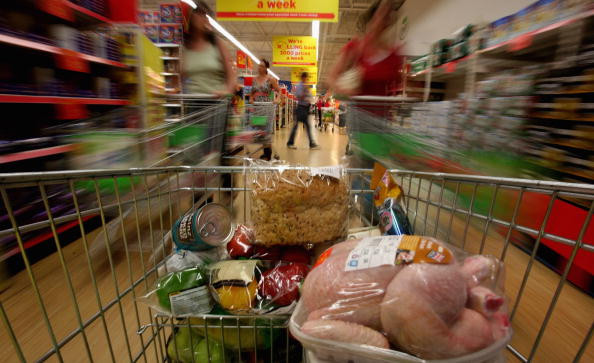UK inflation: Threat of deflation as Consumer Price Index shrinks to 0%

Inflation eroded to 0% in February, its lowest ever level, as consumers continued to benefit from falling prices and increased real wages.
The Office for National Statistics reported the Consumer Price Index shrunk by 0.3% in the month from January – taking it to its lowest since records began in 1988.
It means inflation was unchanged in the 12 months to February.
The slowdown was caused from price movements for a range of recreational goods including data processing equipment, books and games and toys as well as food and furniture and furnishings.
Oil prices also weighed down on inflation as plummeting oil prices saw petrol slump 16.6% last year.
The FTSE fell 13 points to 7033 immediately after the announcement but has since recovered to 7051.
Inflation is running at 0% - the lowest on record. It's good news for family budgets and a sign our long term plan is working.
— David Cameron (@David_Cameron) March 24, 2015Consumers have been boosted by a combination of falling prices and real wage growth but economists will fear the UK is within a whisker of entering a period of deflation.
While deflation might put extra money in the back pockets of consumers, it can also cause a cycle of reduced spending and increased unemployment.
The ONS also announced the rate of Retail Prices Index (RPI) inflation fell to 1% from 1.1% and that UK house prices grew 8.4% in the year to January, down from 9.8% last month.
The fall in inflation could reignite debate on whether the Bank of England should hike interest rates from the historic low of 0.5%.
© Copyright IBTimes 2025. All rights reserved.






















